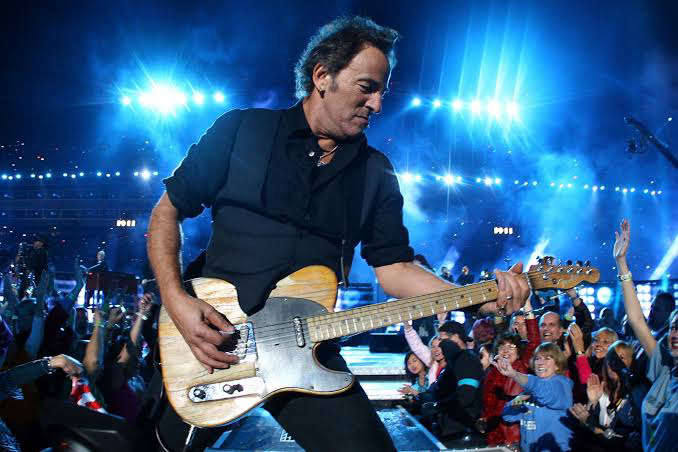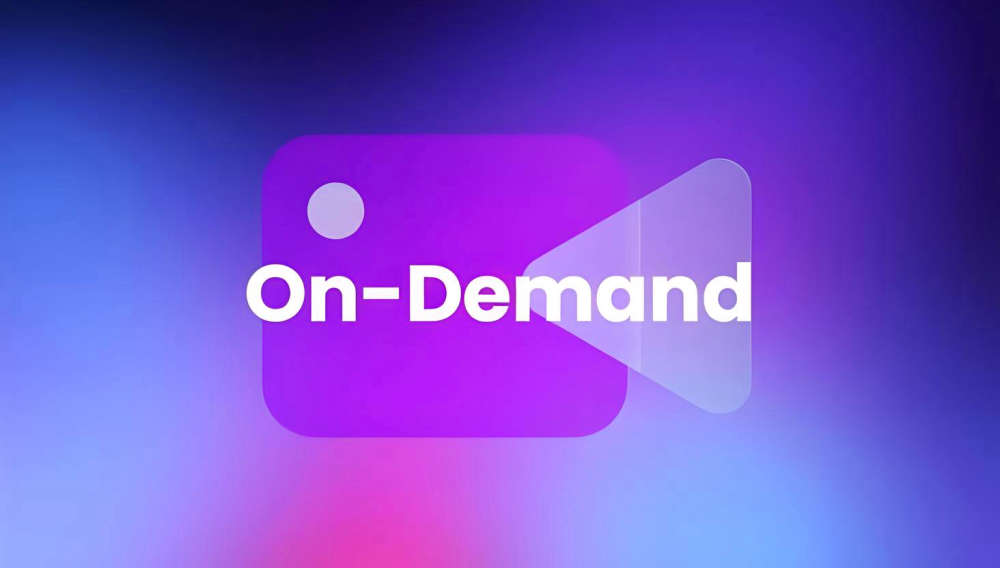
Documentary filmmaker Dylan Southern transitions from docs to narrative features with The Things With Feathers. Southern told ComingSoon all about the transition, how star Benedict Cumberbatch eased his concerns, and the film‘s depiction of grief. It is out in theaters on November 28. “Left to raise two young sons after the unexpected death of his […] The post The Thing With Feathers Director’s Fears Melted After Meeting Benedict Cumberbatch | Interview appeared first on ComingSoon.net - Movie Trailers, TV & Streaming News, and More.

Documentary filmmaker Dylan Southern transitions from docs to narrative features with The Things With Feathers. Southern told ComingSoon all about the transition, how star Benedict Cumberbatch eased his concerns, and the film‘s depiction of grief. It is out in theaters on November 28.
“Left to raise two young sons after the unexpected death of his wife, Dad’s life begins to unravel. Grief is messy and chaotic enough as it is, but when it takes the form of an unhinged and unwanted house guest – Crow – taunting him from the shadows, things start to spiral out of control…but maybe that’s exactly what Dad needs,” says the official synopsis.
Tyler Treese: Dylan, congrats on The Thing with Feathers. I really enjoyed the film. You obviously have a background in documentaries. What was the biggest adjustment in making your narrative film debut?
Dylan Southern: They’re obviously very different mediums. In the past, I’ve made music documentaries, but for the last 10 years, I’ve been working on this film and another film, and it didn’t feel like a huge jump ’cause I also make commercials, but there are a lot of differences. In a documentary, you are watching people and waiting for the story to unfold, or you might go in with an idea of what you think the story is, but it changes over time, and it changes in the edit. And with this, it was an adaptation of a book, a book that I really loved. You go in, you have a vision of the film in your head that is the thing that you want to achieve, and you bring on the collaborators to help you achieve that.
There are some similarities in that the film does continue to change you. There’s that thing people say, “Films are written three times: once when you write them, once when you film them, and once when you edit.” That was true in that film. So that was a continuation of the stuff that I’ve done in documentary. But I think more than anything, it was just that this is a narrative that existed before, and I was trusted with it by the author of the book to kind of translate it into a film. And there’s sort of a lot of pressure that comes with that.
But Max [Porter], who wrote the book, was a great supporter of the project and was available whenever I needed him to look at what I was doing. But yeah, I mean, film and documentary are two very different things. But the skills that I could transfer from the other and other stuff that I was learning for the first time. The pressure of making a film in six weeks, you think about it for years and years, and then suddenly you’re on set and you’ve got six weeks to kind of achieve this thing that you’ve been thinking about. That’s very different to documentary because a documentary, it’s not a finite amount of time. It goes on as long as the story needs to.
I thought this was a really impressive debut by you as well. It’s rare to see a film that treats grief not as an obstacle to overcome, but something to accept and live with. What did you find most interesting about expressing that throughout the film? Because I thought you handled that subject matter really great.
Thank you. Yeah, I mean, it’s a difficult subject and one of the things I loved about the book when I read it, and one of the things I loved about adapting it into a film is that in culture there’s this idea about grief. That it’s this thing that you move through in five steps: denial, acceptance, anger, all of that, and come out the other side somehow healed.
But Max’s book, and hopefully the film, sort of treats that idea in a different way. That grief is something that you have to accept and assimilate, and, as tough and as violent and as brutal as it can be, eventually you have to look for the way that you can make it part of your life, and that it can be helpful in some way.
I wanted to ask you about the film’s aspect ratio. It’s a 4:3 aspect ratio. It really allows the viewer to see Benedict’s expressions. He’s very expressive as an actor. Can you speak to just using that to your advantage as a filmmaker and why you chose that?
Yeah, the 4:3 aspect ratio was a really deliberate choice. I wanted the environment the family were in to feel claustrophobic. And, as you say, when that aspect ratio, when you’re in closeup, you really get to see it is kind of like portrait photography. The composition that it allows on faces really makes you concentrate on performance and emotion.
So there were two reasons why it was always gonna be the aspect ratio: 1) to kind of hem the family in to their space and really get that claustrophobic feeling of being trapped in this emotion, and 2) just because of the sort of compositional opportunity to really kind of examine the faces of these people and the emotions that they’re going through.
I really enjoyed how you changed perspectives throughout the film. I read that it was in the novella as well. The perspective of the boys just really crushed me. That whole section is a real gut punch for a while. What did you like most about seeing this situation from the different perspectives and breaking it into those sections for the film?
Yeah, I mean, the book that this is an adaptation of is a really unusual book in that it’s constantly shifting perspectives. In our film, we chaptered it, so it’s dad’s [perspective], it’s the crow, it’s the boys in the book. It jumps between them page by page. I really love that kind of thing of seeing a period in people’s lives from those different perspectives. And with the boys one in my original script, you heard from the boys at the front of the film.
When we got into the edit, we actually changed that. It became very apparent that if, midway through the film, we completely… ’cause we’ve been through some fairly harrowing stuff with Dad, and we’ve been very much in his world and to the sort of exclusion of the boys to suddenly flip halfway through the film and see what these events that we’ve witnessed in a very kind of selfish way with Dad looked like to the boys, suddenly opened it out, come emotionally, and gave you a brand new perspective on what’s going on for this family.
And I think the boys are so great in the film that at that point, when we shift to their perspective, it is an emotional gut punch. It is kind of, “oh wow, this is what these two little guys have been going through.” And I think structurally it really, really kind of opened the film out at that point.
Benedict gives such a strong performance, and he’s obviously a very intelligent actor who knows his craft and breaks down scenes. So what stood out about him as a collaborator when he is the centerpiece of this film throughout most of it? So, how was it having somebody of his caliber able to put this all together?
It was amazing, and it was daunting ’cause obviously this is my first film directing drama. I didn’t expect to get an actor of his caliber. I kind of worried at first. He’s worked with all of these seasoned directors. He’s worked with Jane Campion, and he’s been on the biggest sets in the world with Marvel. Like he’s gonna come onto this small indie film, low budget, with a director who hasn’t directed this kind of thing before. Am I gonna be good enough?
As soon as I met him, all of those doubts and fears were washed away because he was such an amazing collaborator. He came on board as a producer as well. For weeks before we filmed. I would go to his house, and we’d sit, and we’d talk about the film, or we’d talk about things that weren’t related to the film.
We just became friends over a few weeks. And by the time we got to set it, it was just a really good working relationship already. We were on the same page, and the things that surprised me were just how mesmerizing it was. I think in the first couple of days, I would watch him acting, and I would forget to call cut because I was just enjoying the performance. So the scene would go on much longer than it needed to because I forgot I was directing [laughs].
But then I was also surprised by just how far he would go and how egoless some of it is. He went to some pretty raw and deep and emotional places, and that was just a dream to watch and a dream to kind of be part of crafting that performance.
You got really great performances out of the two boys as well. How was it working with two young kids? I read something that they called you “Weak Man” or something on the set. What is that all about?
So Richard and Henry had never acted before. When we did the casting, we cast wide. We saw hundreds of little boys, and some of them had acted before or gone to drama classes, but Richard and Henry were just kind of raw and, you know, sort of unaffected by having learned things in acting classes that might make them play it a certain way. They just were who they were, and that’s what I loved about them.
I found a tape the other day from one of our early casting sessions, and two other boys were doing an exercise, and I should have been filming them, but my camera just kept drifting back to Richard and Henry watching the others. And they just had something so pure in their faces, and we were uncertain whether we’d be able to get what we needed from them.
They’re quite boisterous, and if they don’t wanna do something, they’ll tell you they don’t want to do it. But just who they were as people were how I imagined the boys as characters. So I just wanted to harness that. It was like capturing lightning in a jar. When they were good, they were absolutely amazing, but then on some days, they’re 7-year-old boys and doing a take for the 15th time is not what they wanna do, and they would just say, “No.” So I’d have to find ways to persuade them, bribe them, and get them to do what I want through tricking them.
The “weak man” thing, on the very first day of filming, I walked onto set, and I think it was Henry said, “Here’s weak man” in front of the entire crew. That became my nickname for the boys for most of the shoot, which was … trying to get the confidence of a crew in a first-time director, and two seven-year-olds are calling him “weak man.” That was a good start.
Thanks to Dylan Southern for taking the time to speak about The Thing With Feathers.
The post The Thing With Feathers Director’s Fears Melted After Meeting Benedict Cumberbatch | Interview appeared first on ComingSoon.net - Movie Trailers, TV & Streaming News, and More.
 Popular Hulu TV Show Renewed for Seasons 4 & 5
Popular Hulu TV Show Renewed for Seasons 4 & 5
 Netflix’s Revival of Hit 80s & 90s TV Show Sets Release Date
Netflix’s Revival of Hit 80s & 90s TV Show Sets Release Date
 Wednesday Season 3 Cast Adds Bond Girl in Key Role
Wednesday Season 3 Cast Adds Bond Girl in Key Role
 Batman v Superman’s Controversial Action Scene Gets BTS Look
Batman v Superman’s Controversial Action Scene Gets BTS Look
 James Cameron’s World War II Movie Gets Disappointing Update
James Cameron’s World War II Movie Gets Disappointing Update
 Five Nights at Freddy’s 2’s Matthew Lillard on Potential 3rd Movie, Scream 7 Reactions | Interview
Five Nights at Freddy’s 2’s Matthew Lillard on Potential 3rd Movie, Scream 7 Reactions | Interview
 James Cameron’s Avatar 3 Might Be Last Movie in Franchise, Here’s Why
James Cameron’s Avatar 3 Might Be Last Movie in Franchise, Here’s Why
 Nicole Kidman Crime TV Show Scarpetta Gets Release Date, First Photos
Nicole Kidman Crime TV Show Scarpetta Gets Release Date, First Photos
 Bugonia Giveaway: Digital Code, T-Shirt, Tote Bag, Candle, & More
Bugonia Giveaway: Digital Code, T-Shirt, Tote Bag, Candle, & More
 Underrated Kevin Costner & Chadwick Boseman Football Movie Now Free to Watch
Underrated Kevin Costner & Chadwick Boseman Football Movie Now Free to Watch
 Avatar: Channing Tatum Almost Played Fan-Favorite Role in James Cameron Movie
Avatar: Channing Tatum Almost Played Fan-Favorite Role in James Cameron Movie
 Rush Hour 4 Gets Major Update Following Donald Trump’s Reported Support
Rush Hour 4 Gets Major Update Following Donald Trump’s Reported Support
 Tron: Ares Digital & Physical Release Dates Set for Disney Movie
Tron: Ares Digital & Physical Release Dates Set for Disney Movie
 Zootopia 2 Review: A Disney Movie Sequel Done Right
Zootopia 2 Review: A Disney Movie Sequel Done Right
 Wicked 3 Gets Exciting Update From Universal
Wicked 3 Gets Exciting Update From Universal
 Wonder Man: MCU Return Teased in Disney+ Show’s New Promos
Wonder Man: MCU Return Teased in Disney+ Show’s New Promos
 Emma Stone Shares 1 Condition She Had for Shaving Head in Bugonia
Emma Stone Shares 1 Condition She Had for Shaving Head in Bugonia
 Goat Trailer: Stranger Things Star Leads Movie From KPop Demon Hunters Team
Goat Trailer: Stranger Things Star Leads Movie From KPop Demon Hunters Team
 Marty Supreme Release Date Moves Up for 70MM Showings of Timothée Chalamet Movie
Marty Supreme Release Date Moves Up for 70MM Showings of Timothée Chalamet Movie






